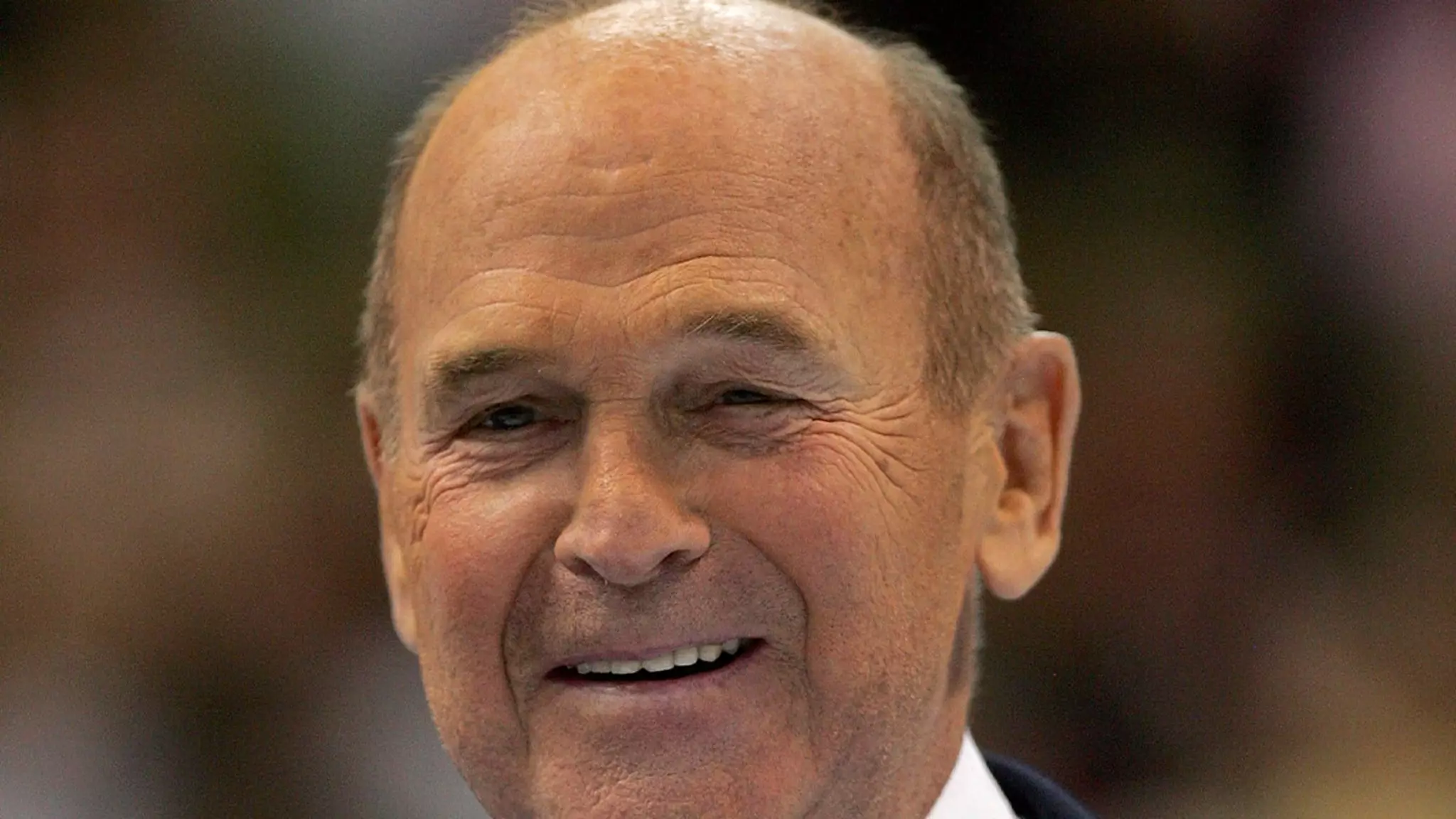The figure skating world is currently enveloped in sorrow with the passing of Dick Button, who famously marked America’s entry onto the global figure skating stage. As the first high-profile Olympic gold medalist in American figure skating history, Button’s impact transcends the ice. His extraordinary journey began in the 1940s when he burst onto the scene as a dazzling competitor, ultimately becoming one of the sport’s most influential figures. His death not only signifies the loss of an icon but also represents a poignant moment for the sport itself, coinciding as it did with an unrelated tragedy that stunned the skating community.
The revelation of Button’s passing comes in grim concert with news of a devastating plane crash that claimed the lives of young skaters from the American figure skating community. Fourteen individuals involved in this heartbreaking incident were connected to the world of skating, leaving many to contemplate the fragility of life and the profound ties that bind the skating family. This double blow has left a pall over the sport, as it simultaneously reflects on its illustrious past while grappling with its present grief.
Button’s achievements are remarkable: he was a five-time world champion and captured Olympic gold medals at 18—a feat that remains unparalleled. In an era dominated by European athletes, his wins in 1948 and 1952 signaled a shift in competitive balance and inspired a generation of young American skaters. Not merely a champion, Button was a pioneer, evolving the sport’s perception and encouraging future athletes to aspire for greatness.
Beyond his competitive prowess, Button transformed sports commentary, effectively becoming the voice of figure skating for millions. His career in broadcasting began in 1960, coinciding with the Winter Olympics. He was among the first to bring the sport to the mainstream audience through a genuine and candid approach. Button was renowned for his honesty and forthright critiques, which sometimes stunned audiences but resonated with the need for transparency in sports commentary. His observations, such as calling a poorly executed performance “slapped together,” became legendary. This authenticity endeared him to fans who appreciated not just the technical aspects of the sport, but also the art of storytelling that made figure skating exciting to watch.
As Dick Button bids farewell at the age of 95, it is crucial to reflect on the legacy he leaves behind. His records, including two Olympic gold medals and seven national championships, remain unbroken, serving as milestones for current and future athletes to strive toward. Yet, his influence extends far beyond numbers; he rewrote the narrative of American figure skating and served as a mentor, guide, and advocate for young skaters. Button played a key role in establishing a more inclusive and diverse landscape within the sport, paving pathways for upcoming talent.
In addition to his athletic and broadcasting legacies, Button was a devoted family man, survived by his two children. The warmth of his personality matched the frost of the rink, as he often dedicated his life’s work to not just the competition but also fostering a community among skaters and fans alike. This dual legacy of competition and camaraderie is what ultimately solidifies his place as an enduring figure in the sport.
The passing of Dick Button signifies more than just the loss of a competitor; it marks the end of a vibrant chapter in figure skating’s history. As the community mourns both him and the young talents tragically lost in recent days, it is essential to celebrate the essence of what Button represented: resilience, artistry, and an unwavering love for the sport. His spirit will live on in the hearts of many, inspiring current and future generations of figure skaters. Thus, while we grieve, we also honor his remarkable contributions and the lessons he imparted in both success and humility. His legacy in American sports will remain bright for years to come.

